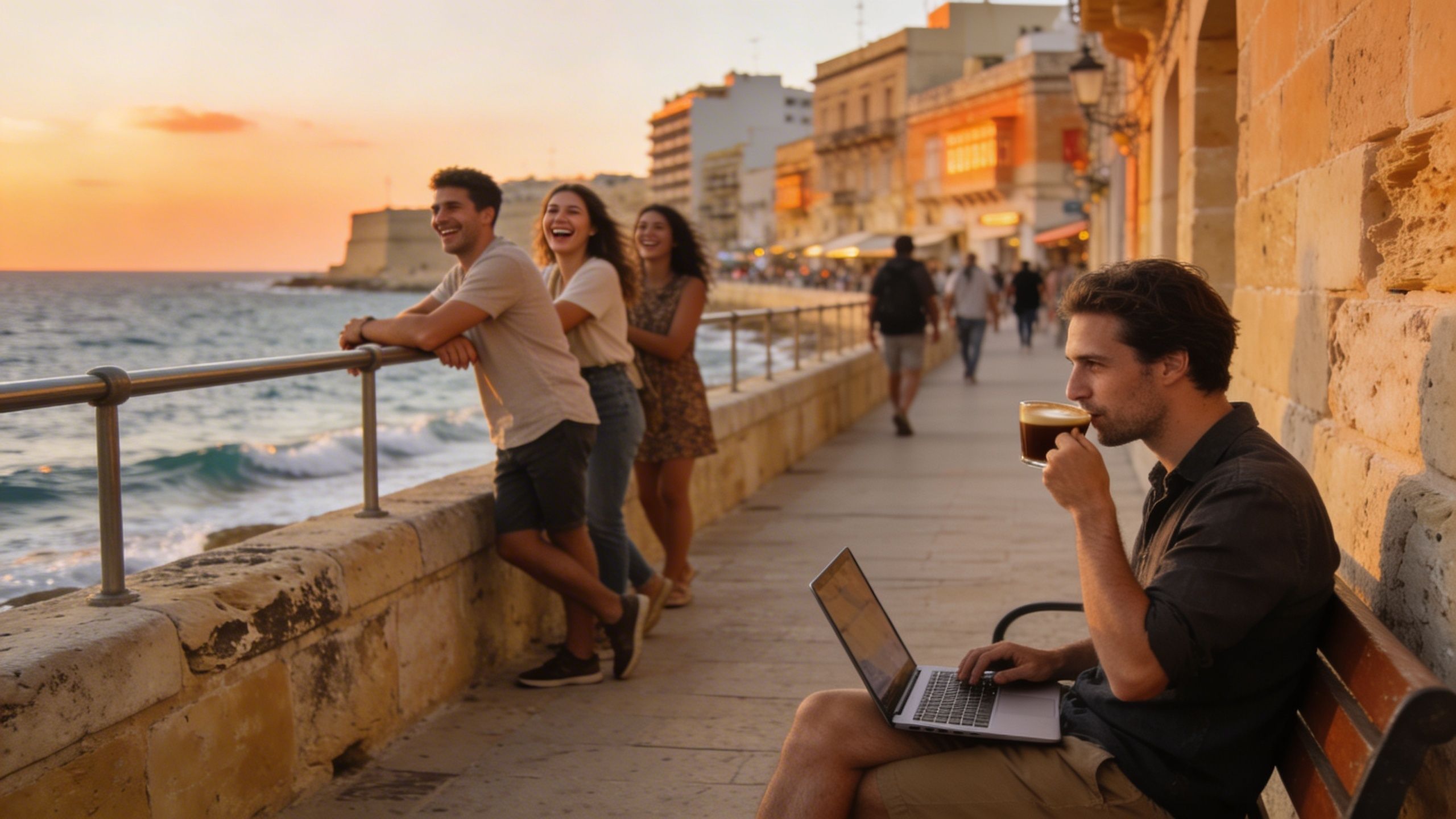Which Visa Lets You Live Like a Local in France
Which French visa actually lets you live like a local — and how each route shapes neighbourhood choice, work rights and property fit. Practical steps + official links.
Imagine starting your day with a croissant at Café Charlot in Le Marais, a laptop open, 5G humming, and a French neighbour inviting you to a Saturday market on Rue Cler. France isn't only about chateaux and Riviera sunsets — it's neighbourhood rituals, boulangeries that know your name, and work-friendly cafés that double as community hubs.
Living the French lifestyle — streets, seasons and small rituals

Wake-up rhythms change by region. In Paris you’ll chase fresh bread at 8am, while in Nice mornings drift to the Promenade des Anglais for a jog before a café serré. In Bordeaux, weekends smell of ripe markets and wine tastings; in Brittany, tides set the pace. That tempo shapes what home looks like — champagne-glass terraces in the south, compact historic flats in city centers, garden houses in provincial towns.
Neighbourhood spotlight: Le Marais, Nice Old Town & Bordeaux Chartrons
Le Marais is for cobbled streets, boutique cafés and cultural evenings; expect narrow apartments with character and brilliant walkability. Nice’s Old Town gives you sea-laid mornings, outdoor markets like Cours Saleya and relaxed alfresco life. Chartrons in Bordeaux combines weekend markets, riverside strolls and former-warehouse conversions—great if you want roomy apartments and a close-knit creative scene.
Food, markets and seasonal life that shape where you buy
Seasonality matters: truffle season in Dordogne, rosé and festivals on the Côte d’Azur, oyster months in Arcachon. If you love open-air markets and cooking, target neighbourhoods near Marché d’Aligre (Paris) or Marché Forville (Cannes). Properties with small kitchens and storage for market finds become surprisingly valuable to the lifestyle-focused buyer.
- Lifestyle highlights: morning cafés, weekly markets, coastal walks, evening aperitifs, small local boulangeries, community festivals.
Visas that let you settle — which one supports the life you want?

Dreams meet paperwork here. The visa you choose changes whether you can work, bring family, or move freely across regions. French authorities distinguish short stays from long-stay visas (over 90 days) and different long-stay types have real lifestyle impacts — from the Passeport Talent for professionals to the visitor/retiree routes for those who can support themselves without local employment.
Passeport Talent — work, family access and multi-year stability
If you’re a skilled employee, founder or researcher, Passeport Talent gives multi-year permits and lets family members work. That means you can buy with confidence, enroll kids in schools, and plug into local life faster. For nomads wanting to base themselves while keeping a global client list, this status balances professional mobility with local residency rights.
Visitor / long-stay (VLS) — living in France without working locally
The VLS for visitors or retirees suits those who can prove stable income abroad (pensions, remote earnings). You won’t have a local employment contract, but you’ll be able to live fully in French neighbourhoods. That influences what property you choose: quieter towns with larger homes are cheaper, while city-centre flats give more social access but can be pricier.
- Six steps to match visa to lifestyle: 1) List daily routines (coworking, markets, beaches). 2) Check if you need a right-to-work (Passeport Talent) or passive income (VLS). 3) Confirm family needs (schools, spouse work rights). 4) Map regions with those amenities. 5) Talk to a local agency that handles residency-linked searches. 6) Start visa application at your consulate before house-hunting.
Insider knowledge — what expats wish they'd known before buying
Expat buyers tell the same story: lifestyle wins are real, but so are surprises — inheritance rules, local neighbourhood politics, and seasonal quiet that affects rental demand. Recent reporting shows Paris concentrating wealth and price pressure, so many international buyers now look to secondary cities (Lyon, Nantes, Bordeaux) for a better lifestyle-to-price ratio.
Language, community and local routines — integration matters
Learning basic French opens doors. Join local marchés, language exchanges or coworking meetups (e.g., Wojo or Station F events in Paris). Small cultural gestures—shopkeepers’ greetings, neighbourhood library memberships—accelerate feeling at home and help you discover off-market listings passed between neighbours.
Long-term property sense: seasons, renovation reality and local agents
France’s market is regionally diverse: coastal seaside towns can be seasonal investments; historic apartments often mean higher renovation needs and stricter heritage rules. Work with agents conversant in local planning and the notaire process — they’ll save you time on title checks and renovation permissions that can derail plans if overlooked.
- Quick practical checklist before buying: proof of visa pathway, confirm right-to-work, local tax registration, ask about seasonal rental rules, check heritage/renovation limits, validate broadband/coworking proximity.
France is less a single dream and more a set of lived scenes—market mornings in Lyon, sunset aperitifs on the Riviera, weeknight concerts in Toulouse. Pick the visa that supports how you want to live, then find the neighbourhood that fits that life. Start with the French visa assistant and a local agency who knows the lifestyle you want; book a market walk or coworking day to test the rhythm before signing.
Swedish, relocated to Marbella in 2018 to chase sun and property freedom. Focus on legal navigation and tax for Nordic buyers.


